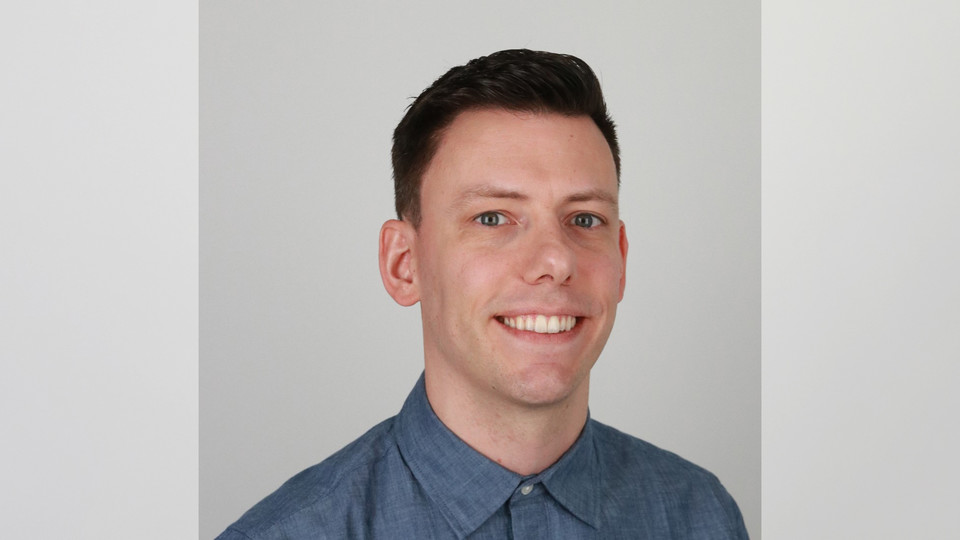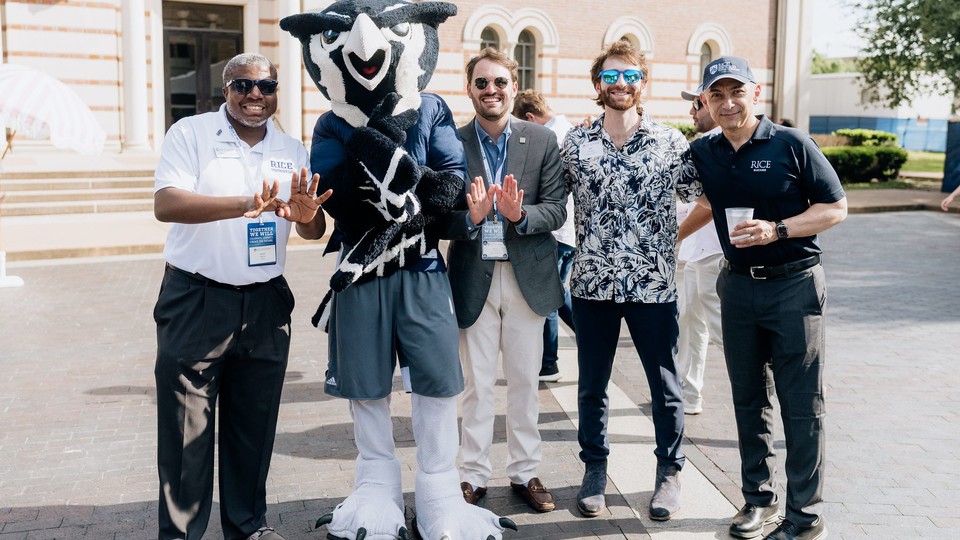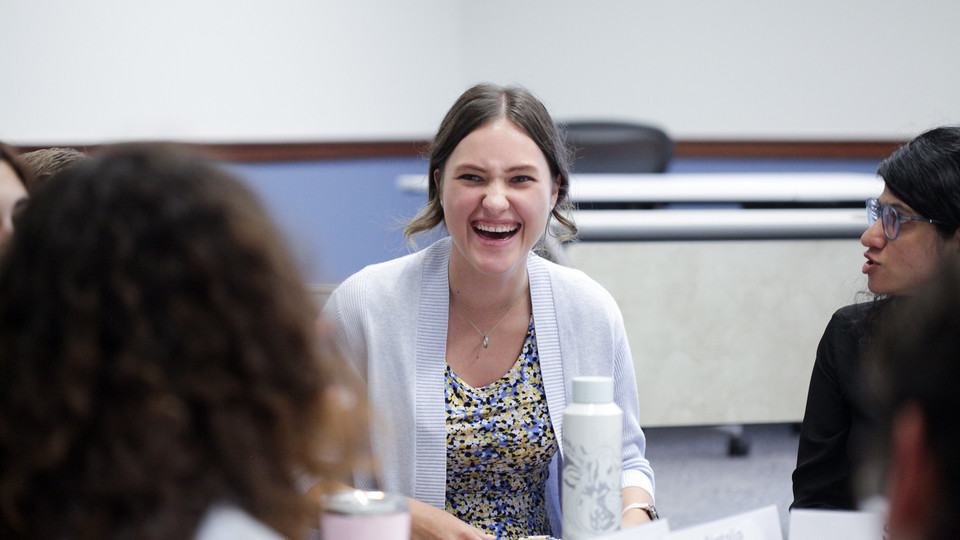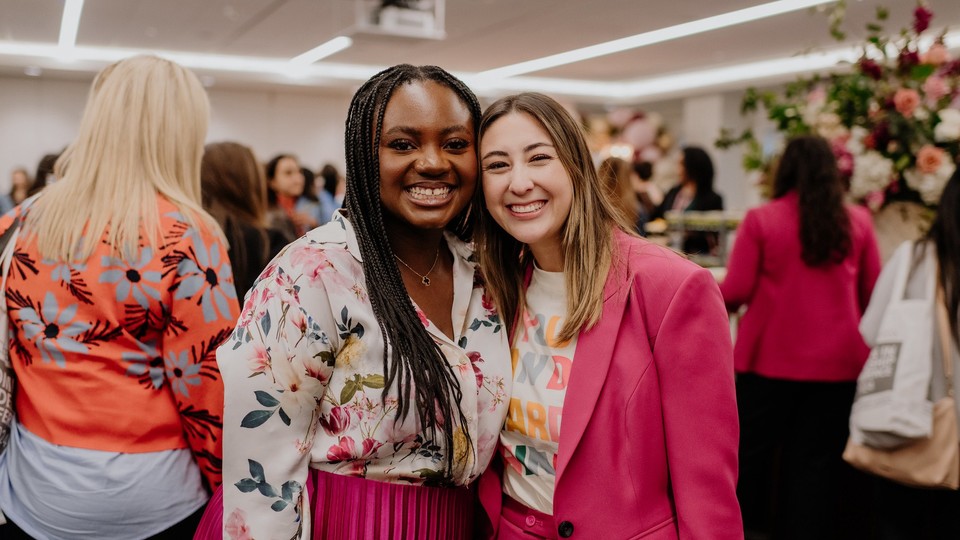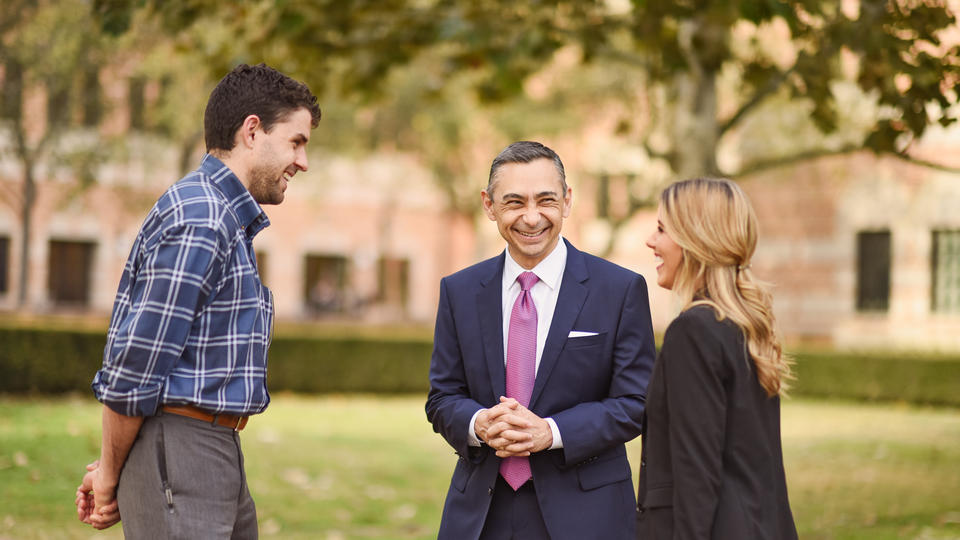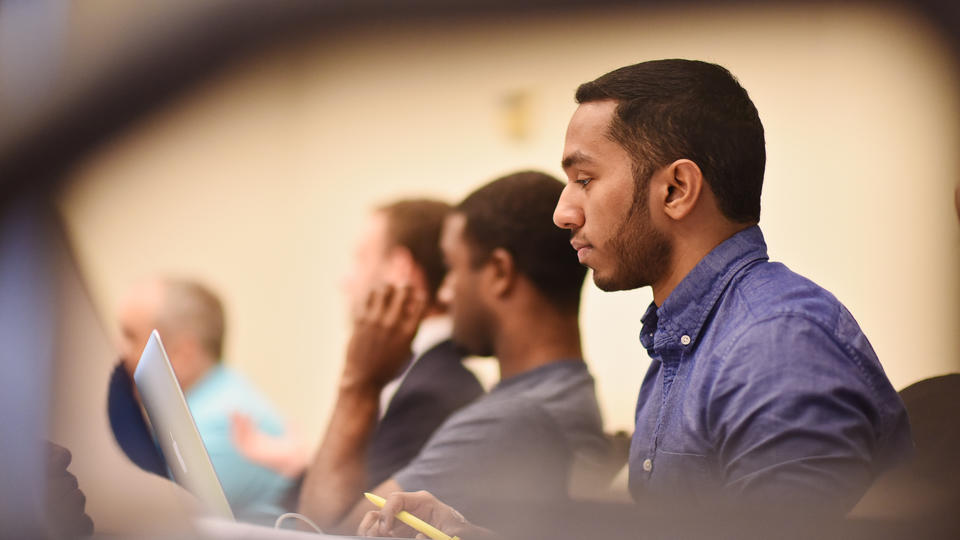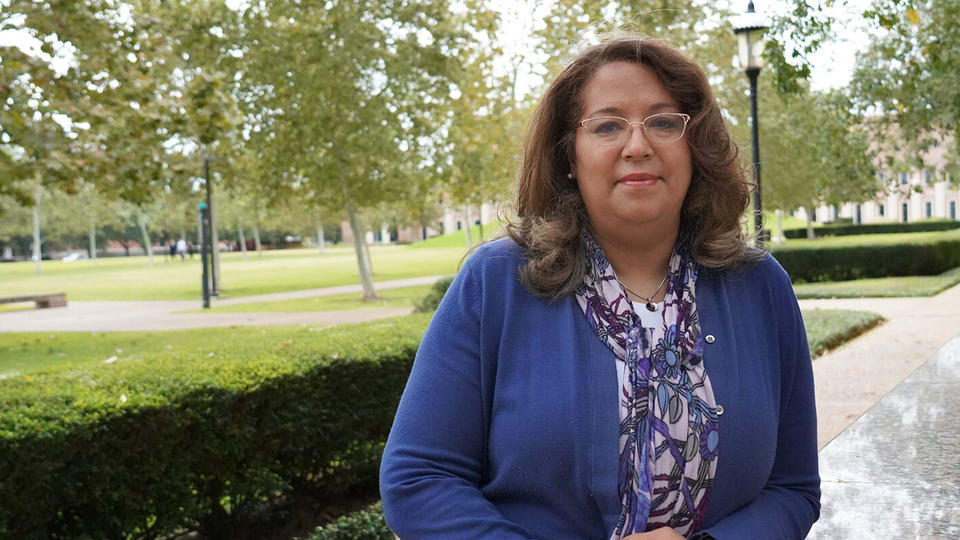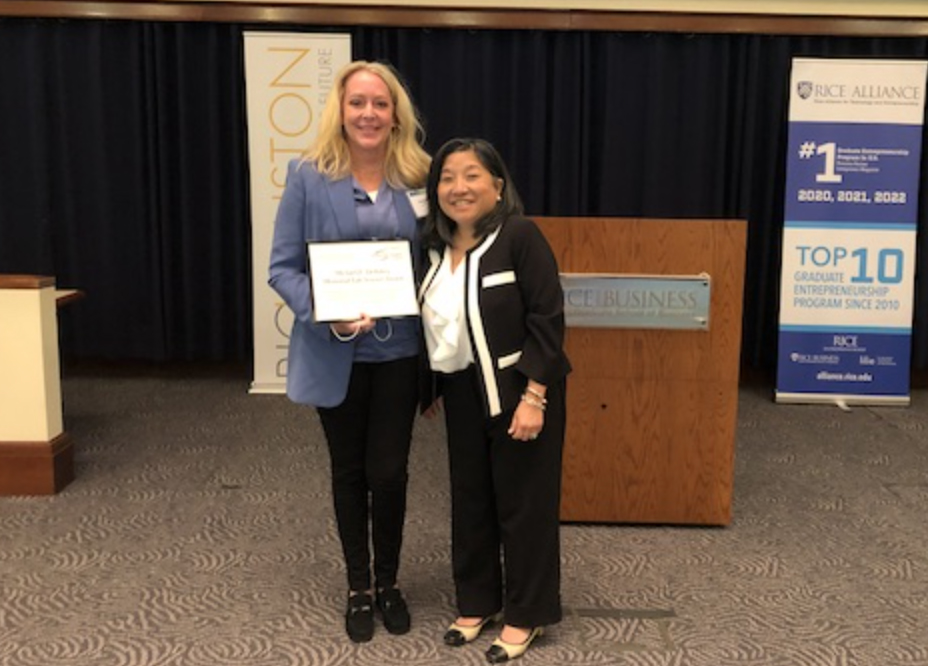
Texas Life Science Forum honors top life science innovation companies
Life science investors, leaders and innovators gathered at the Jones Graduate School of Business to discuss Houston’s role in the future of health care, medical technology innovation and life science commercialization during the 10th annual Texas Life Science Forum.


Life science investors, leaders and innovators gathered at Rice University’s Jones Graduate School of Business to discuss Houston’s role in the future of health care, medical technology innovation and life science commercialization during the 10th annual Texas Life Science Forum.
The forum, co-hosted by BioHouston and the Rice Alliance for Technology and Entrepreneurship in partnership with the Texas Medical Center (TMC) and JLABS @ TMC, is one of the premier life science venture capital conferences in the U.S.
More than 40 companies — about half of them based in Houston — pitched their innovative solutions in therapeutics, drug development, medical devices, diagnostics and digital health. The presenting companies have already raised a combined total of more than $600 million in funding.
The day kicked off with a keynote from Dr. Stephen Hahn, CEO-partner of Flagship Pioneering and former Food and Drug Administration commissioner, along with remarks from leaders from the TMC, the University of Texas MD Anderson Cancer Center, TMC Innovation, Johnson & Johnson’s JLABS and Rice University.

“With attendance by over 600 individuals, including representatives from life science companies from California to Massachusetts — as well as internationally — this year’s event showcased the robust growth in our life science ecosystem since this event was first held a decade ago,” said Ann Tanabe, chief executive officer at BioHouston.
Dynamic Light won the Michael E. DeBakey Memorial Life Science Award, established by BioHouston to honor the groundbreaking Houston cardiovascular surgeon. Its software integrates with microscopes or robotics and provides surgeons with full-color visualization of blood flow and tissue perfusion in real time without expensive dyes or radiation.
Ten other entries were chosen by investors as the Rice Alliance Most Promising Life Science Companies, presented by the Greater Houston Partnership. They are:
- NeuraStasis (Houston) places neural tissue into stasis, giving ischemic stroke patients more time to receive treatment.
- Maxwell Biosciences’ (Austin, Texas) CLAROMER biomimetic drug discovery platform precision-engineers small molecules that mimic and enhance peptides to create synthetic compounds with enhanced potency, safety and stability for fighting viral, bacterial, fungal and oncological threats.
- Lapovations (Arkansas) is a medical device company creating a platform of innovative products that improve laparoscopy.
- Drusolv Therapeutics (Pennsylvania) is a clinical-stage drug company developing a high-dose oral statin for early intervention in a blinding eye disease called age-related macular degeneration.
- Vena Medical (Ontario) provides physicians with the world's smallest camera capable of going inside veins and arteries to help treat strokes.
- Vivifi Medical (Houston) is developing a minimally invasive solution to treat benign prostatic hyperplasia and men’s health problems through a quick and easy vascular procedure.
- Corveus Medical (Houston) is developing a minimally invasive, catheter-based treatment to lift the clinical and economic burden of heart failure.
- XN Health (Houston) is a medical device company combating diaphragmatic atrophy in mechanically ventilated patients to facilitate the weaning process through a novel phrenic nerve stimulation device.
- Ares Immunotherapy (Georgia) is a solid-tumor-focused, early-stage cell therapy company based on a T-cell platform technology with better potency and persistence than other T-cells used therapeutically.
- EMPIRI (Houston) is revolutionizing cancer care with a novel technology that accurately predicts each patient's treatment responses empirically, enabling doctors to make the optimal treatment selection for each cancer patient.
This year’s Texas Life Science Forum was made possible by more than 50 industry, academic and community partners including the TMC, Lonza, Perkins Coie, JLABS, Proxima Clinical Research and Shearman & Sterling.
To learn more about the Texas Life Science Forum visit txlifescienceforum.org.
You May Also Like

Rice University’s Jesse H. Jones Graduate School of Business today announced the launch of its Graduate Certificate in Healthcare Management program, a 10-month, credit-bearing professional credential designed for current and aspiring leaders seeking deep expertise in the business of healthcare.
Shell, BP and ExxonMobil have done business in Russia for decades – here’s why they’re leaving now
Shell, BP & ExxonMobil are pulling out of Russia even though it means steep financial hits for them. Rice Business Professor Yan Anthea Zhang explores how Western energy companies are recalculating the cost of doing business in Russia for The Conversation.

The Dos and Don'ts of Launching a Business feat. Alex Porter ’18
Season 2, Episode 9
Host David Droogleever is joined by Alex Porter ’18, the managing owner of Southern Yankee Beer Company. He and David discuss what to do (and what not to do) when launching a business.

Owl Have You Know
Season 2, Episode 9
Host David Droogleever is joined by Alex Porter '18, the managing owner of Southern Yankee Beer Company. He and David discuss what to do (and what not to do) when launching a business.
Subscribe to Owl Have You Know on Apple Podcasts, Spotify, Youtube or wherever you find your favorite podcasts.
You May Also Like
Two MAcc Students’ Experience on the Job Market
Over the past five years, 98% of Rice MAcc students have accepted a full-time job offer before their graduation.
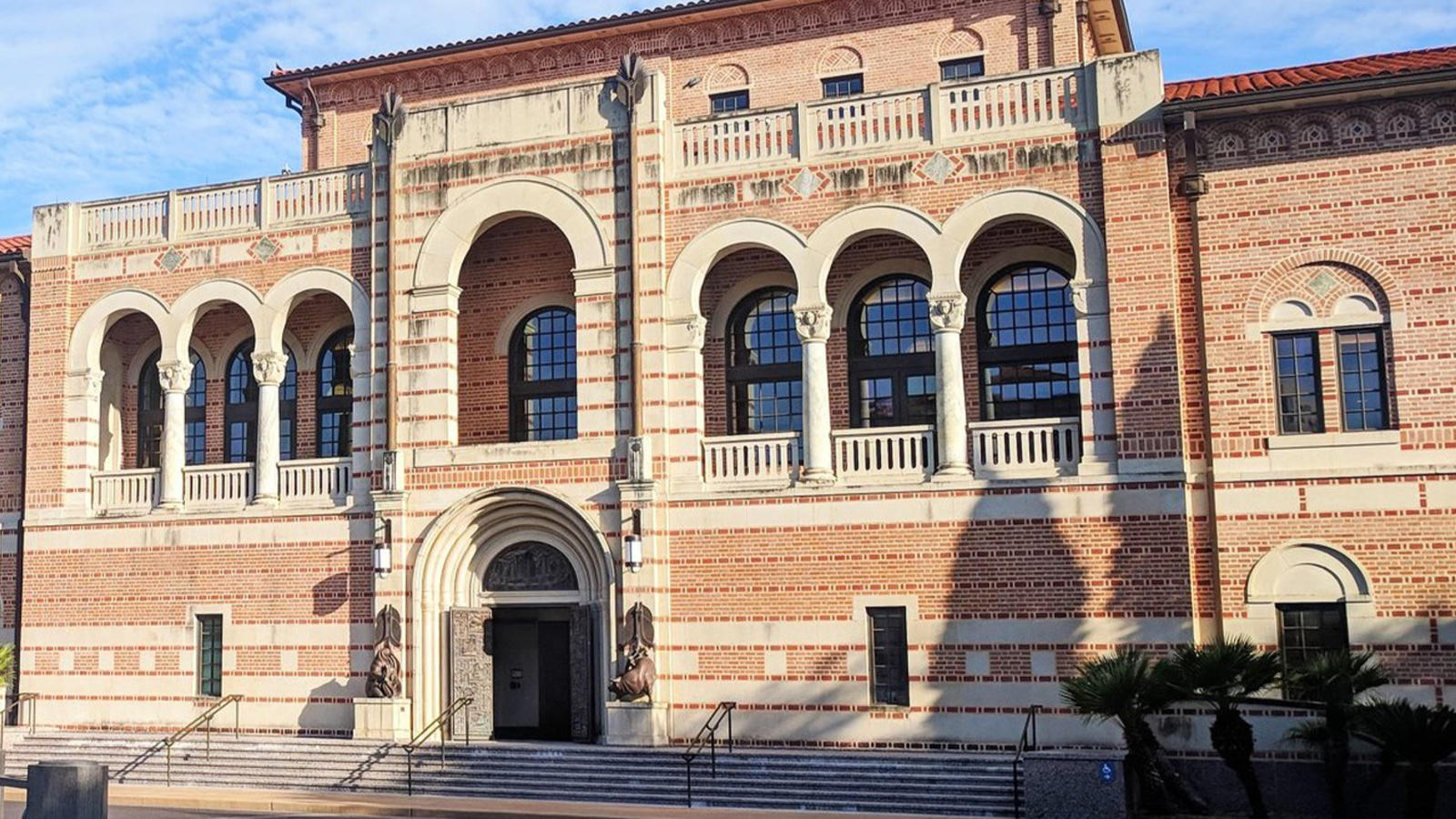

In our last blog post, we described how the job recruiting process for Rice MAcc students works, including the Rice MAcc programming that gets students prepared to excel on the job market. In this blog, we profile two MAcc students’ recent job hunt experience.
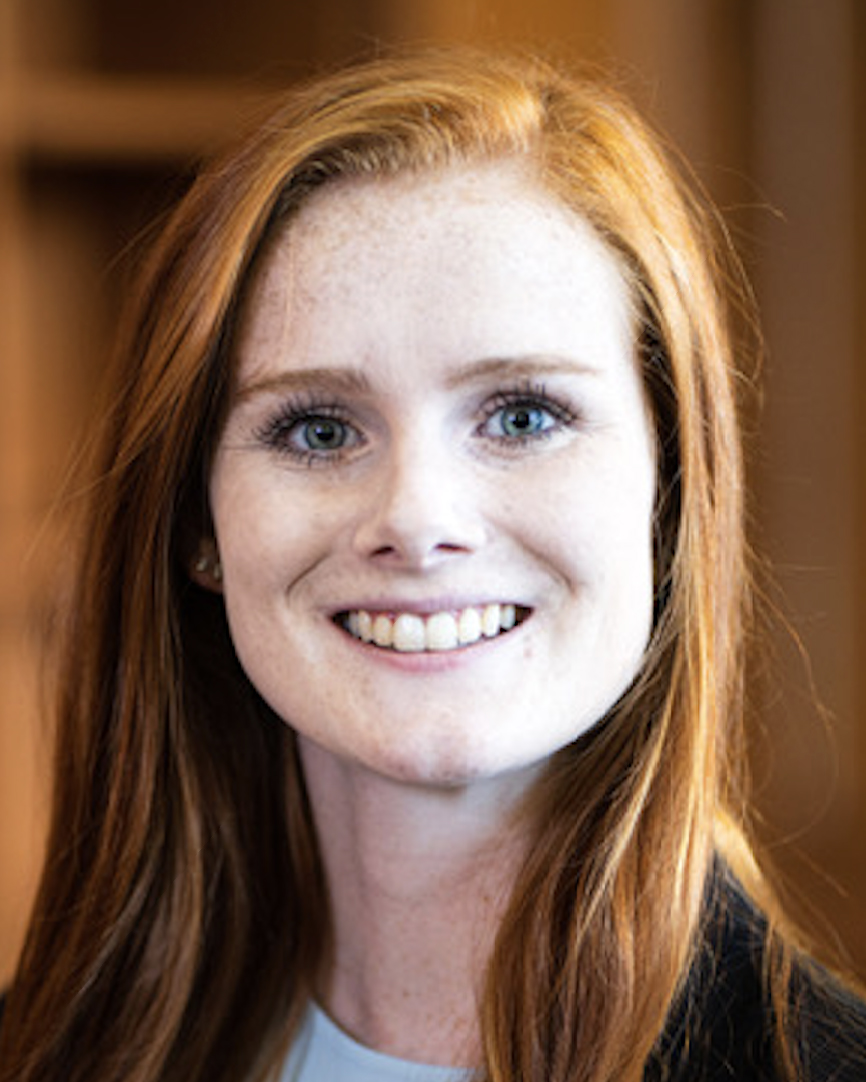
Bayleigh Green
Rice MAcc Class of 2022
Bayleigh earned her bachelor’s in business finance and sociology in May 2021 from Austin College, which is a selective liberal arts college in Sherman, TX.
As an undergraduate at Austin College, Bayleigh kept busy. She excelled in her coursework, played on her college’s soccer team, and was an active member of her sorority. She also worked as a waitress at several restaurants throughout her college years, which taught her how to thrive in fast paced and high-pressure situations.
Still, she told us, she was a little nervous about what the job interviewing process was going to be like. This was new territory for her. Fortunately, she found the Rice MAcc’s recruiting preparation programming enabled her to navigate her job interviews confidently. In fact, rather than being an unpleasant experience, Bayleigh found speaking with representative from the public accounting firms and learning about each firm’s culture was enjoyable.
Bayleigh also told us that she appreciated being able to talk and email with the MAcc program director whenever she wanted to get his advice and input throughout her recruiting process.
In the end, Bayleigh did very well on the job market, getting job offers from multiple firms. After giving it careful consideration, in November 2021, she accepted a post-graduation job offer in audit with PwC in their Houston office. We know she’s going to shine.
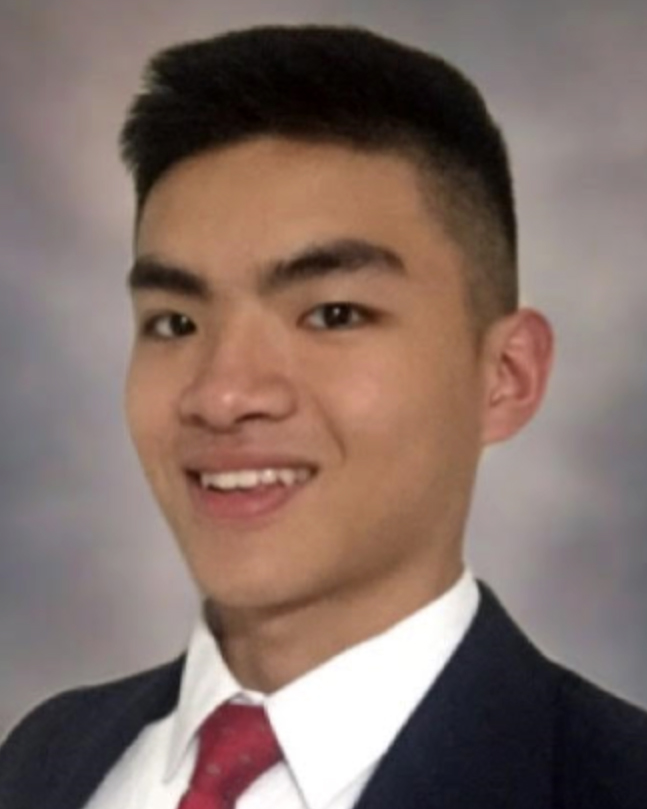
Alex Nguyen
Rice MAcc Class of 2022
Alex, a classmate of Bayleigh, completed his bachelor’s in finance at the University of Texas at Dallas in May 2021. Impressively, due to having loaded up on college-credit courses while in high school, he was able to complete his UT-Dallas degree in just two years. And, even more remarkably, he served in the Texas Army National Guard during his time in college. You have to wonder when he sleeps!
Before starting the Rice MAcc program, Alex already had his first job goal set: to land a position at one of the Big Four public accounting firms. Public accounting’s reputation for on-the-job learning, quick professional advancement, and camaraderie all appealed to him.
Nevertheless, once he arrived in Houston and began the Rice MAcc program, Alex was struck by the broad scope of job opportunities available to MAcc students. While students choose to take a first job in public accounting, by no means is that their only option. Alex tells us that he and his fellow MAcc students felt that they were “picking and choosing which types of job they wanted to apply for,” rather than feeling limited to a narrow field of job prospects.
In the end, Alex stuck with his original plan and achieved his goal: in November 2021, he accepted a job offer in assurance at Big Four firm PwC in Dallas. He’ll start working there in the late summer of 2022. Given Alex’s work ethic, we can’t wait to see where his career path takes him.
This Could Be You Too!
The job opportunities for Rice MAcc graduates are excellent. Because accountants are in demand across all sectors of the economy, a Rice MAcc degree equips you to find an accounting career tailored to your professional passion. Rice MAcc students graduate with highly competitive skills, and we are proud of our strong relationships with firms and corporations eager to recruit our students.
Interested in learning more about our program or the career opportunities the Rice MAcc opens up? Email us at RiceMAcc@rice.edu.
Interested in Rice Business?
Does an accounting-based career sound like it’s for you? Contact us at ricemacc@rice.edu! We would love to share more information with you about the benefits of pursuing a graduate accounting degree at Rice.
Keep Exploring
Team Work
At the beginning of their MBA journey, after team assignments during their first week, five EMBA students met for dinner at Hotel Zaza. During the meal, they stumbled across something unique about their team: they were all born and raised outside the U.S. and all of them spoke English as a second language. Meaningful connections to classmates are what the Rice EMBA is all about.
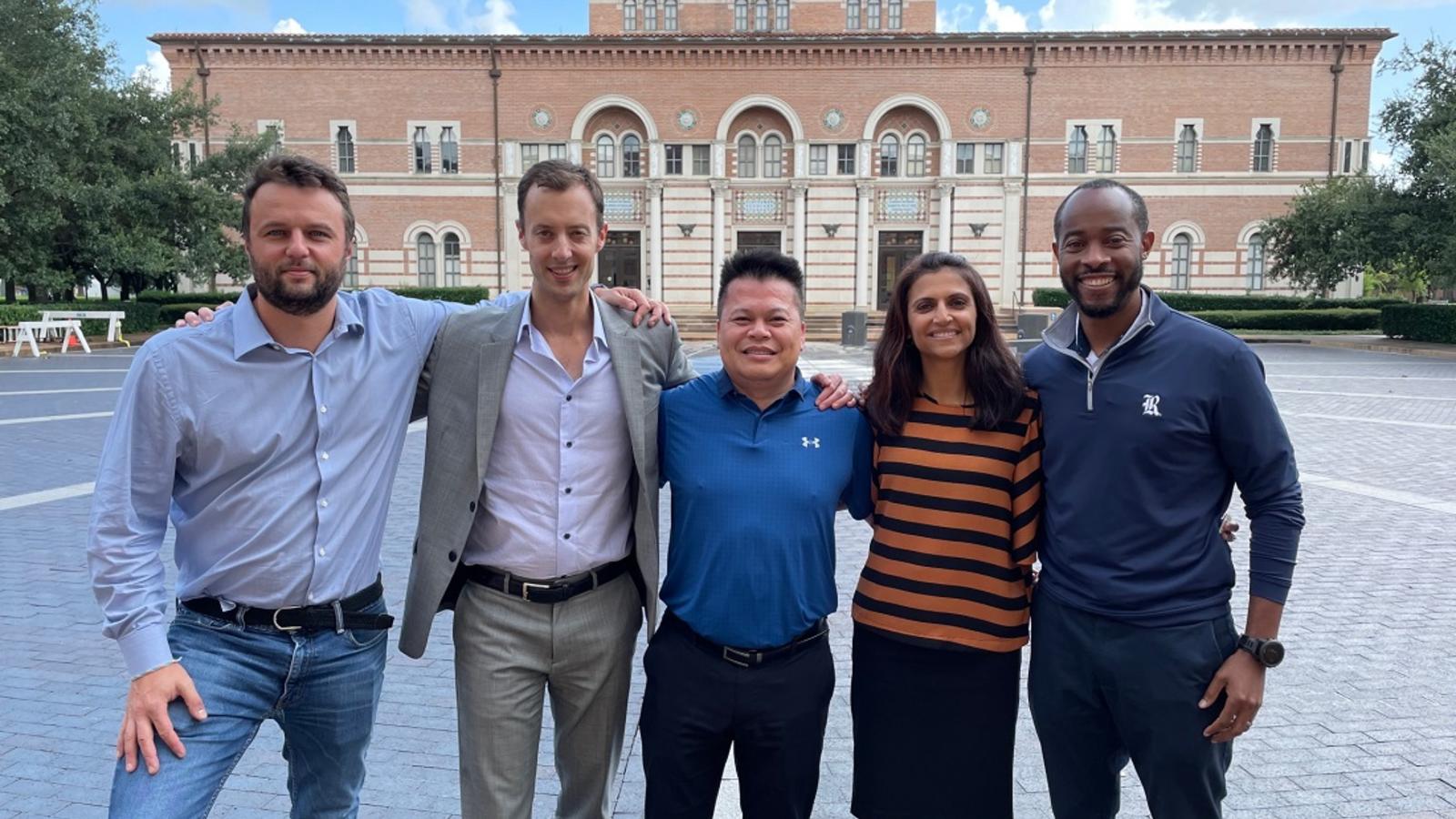
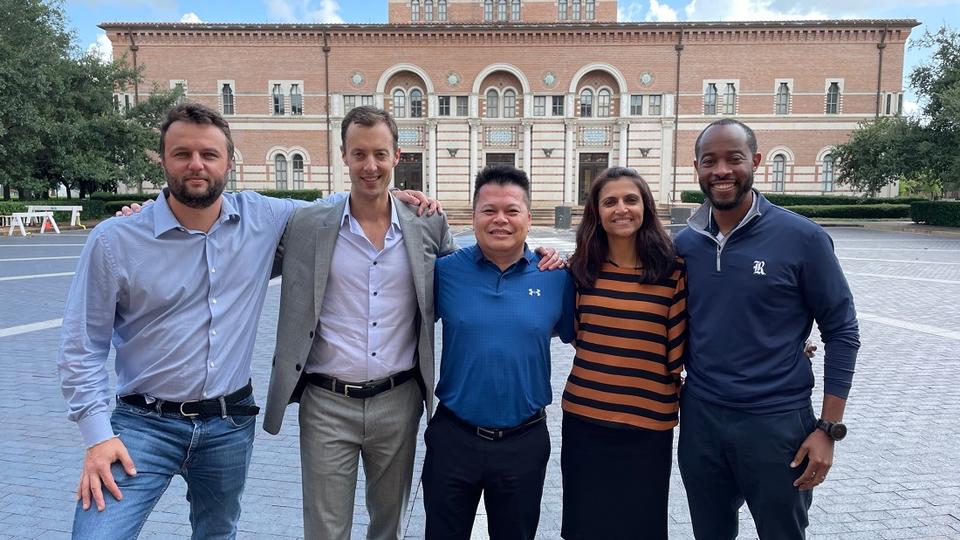
At the beginning of their MBA journey, five EMBA students met for dinner at Hotel Zaza after team assignments during their first week. During the meal, they stumbled across something unique about their team: they were all born and raised outside the U.S. — India, Italy, Norway, Taiwan and Tanzania — and all of them spoke English as a second language.
It was a revelation. “We’re as diverse as we can possibly be, culturally and professionally,” Panthini Patel said.
“It was clear immediately, we were a team with very interesting backgrounds,” Bamrom Jonathan said. “We all had a lot to share and became very close immediately. We couldn’t wait to bring our families together.”
How teams are born
In the Rice MBA, cohorts in each program are made up of five-to-six-person teams that stay together for two years. When creating teams, the student program office tries to balance the mix by:
- Gender
- Profession
- Company
- Background, so teams include an international or veteran student
- Age, so all teams have the same average age
And then the work begins. For this diverse team of EMBA students, the work included food and family.
They met for dinners in different restaurants that represented each members’ culture, so the others could try new things. Stefano Capponi chose Fresco Cafe Italiano, not far from campus, on a Saturday after class.
“I’m from a big family where you have massive meals, spending hours at the table. And using the table to talk. The idea is that Italian food is simple and laid back but the ambiance is what creates the environment. That’s how I grew up.”
He wanted to show the richness of that life to his teammates. “Fresco is a small joint where you can’t make reservations; it’s always packed; there’s no table service, and you bring your own wine. When I brought the team, they were surprised by the environment. Like, what is this place? It’s not high end. But after the initial shock, they loved the food and the feeling. We stayed for three hours. It was great.”
Interested in Rice Business?
Classroom conversations
At Rice Business, we believe that diverse teams make the best decisions, a sentiment echoed by Dean Peter Rodriguez. The global perspective in the EMBA classrooms is deepened by its students’ varied career and cultural backgrounds. This diversity is a core strength of our program, leading to richer discussions and more comprehensive learning experiences.
“It’s a huge benefit to have international participation. It allows the class to learn about how certain business concepts have materialized in various countries and across borders,” Haavard Oestensen said. “In a recent session on macroeconomics, while we were covering international trade, our classmate Larry Rubin was able to share his experience with US-Mexico trade relations from the perspective of his appointment as chairman of The American Society of Mexico. Our classroom sometimes feels like a UN meeting.”
Tsenghui (Leo) Sung added that “the concepts we learn in the classroom are good; the experience and ideas we share are from real life and practical to our day-to-day activities in work.” But it’s the different viewpoints that deepen their studies. “The team is open to discussion and sharing experiences and ideas.”
Personal gains
Of course, the chemistry within a team is a huge benefit to the MBA experience. And setting a tone was intentional from the beginning. Bamrom kicked it off with a pool party at his house. “We have family events with our team where we try different cuisines and share precious moments,” he said. “We’re building lifetime friendships and looking forward to what the future brings.”
Panthini and her husband made an Indian dinner from scratch. “We met in the front yard. The kids played basketball and rode bikes in the neighborhood. We made so many dishes — four to five different curries, vegetables — even though Stefano doesn’t like spicy food. For me, it means so much to show them that I care about them.”
Connections to classmates are what Rice Business' EMBA program is all about. Building and expanding your network will serve you beyond the two years on campus.
Meet the Team
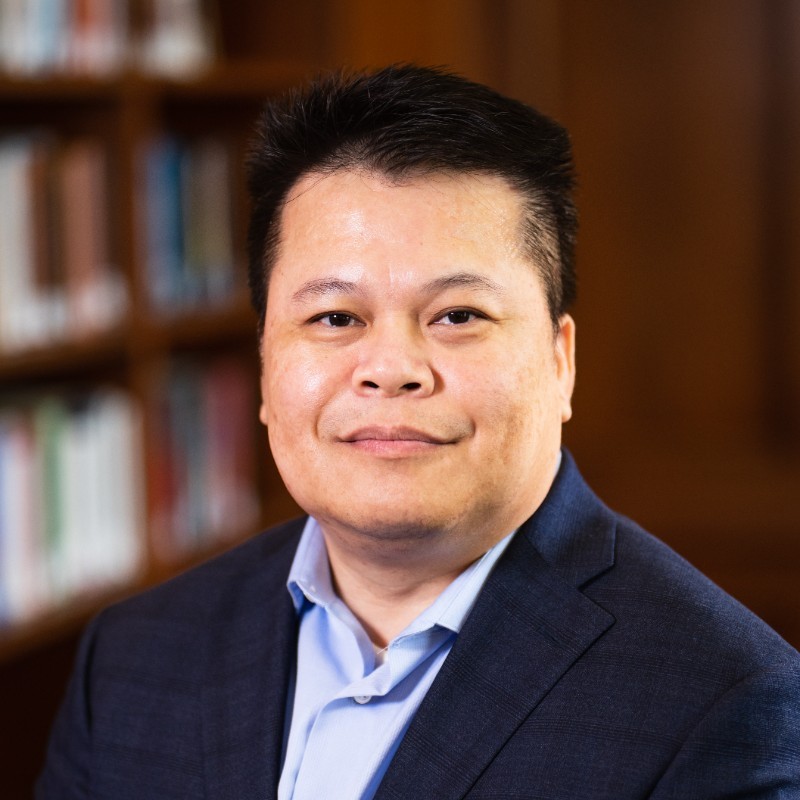
Tsenghui (Leo) Sung
Leo is the senior director of business development and program management at Foxconn Industrial Internet (Fii). He hails from Taiwan and speaks Mandarin.
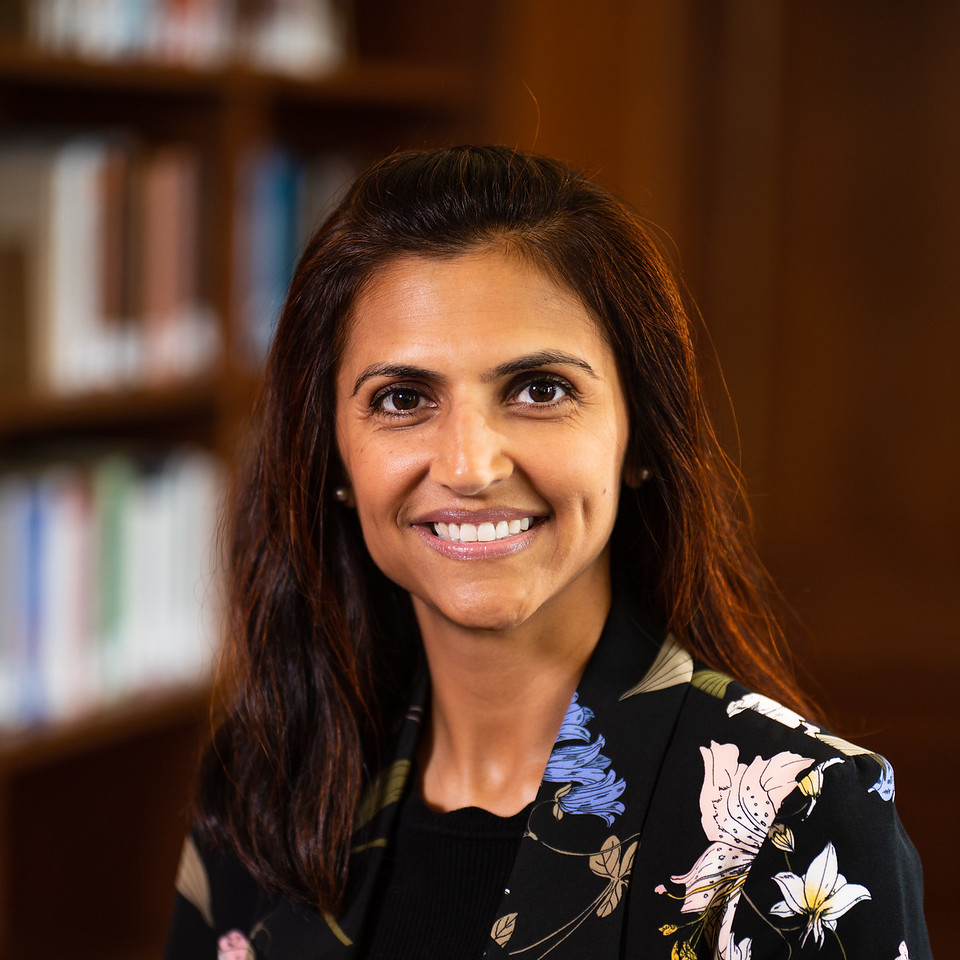
Panthini Patel
Now the director of global strategic accounts at Emerson, Panthini was born in India and lived there until the age of 10. She grew up speaking Gujarati and Hindi.

Haavard Oestensen
Haavard is the Vice President of Growth at Kongsberg Digital, was born and raised in Norway and speaks Norwegian.
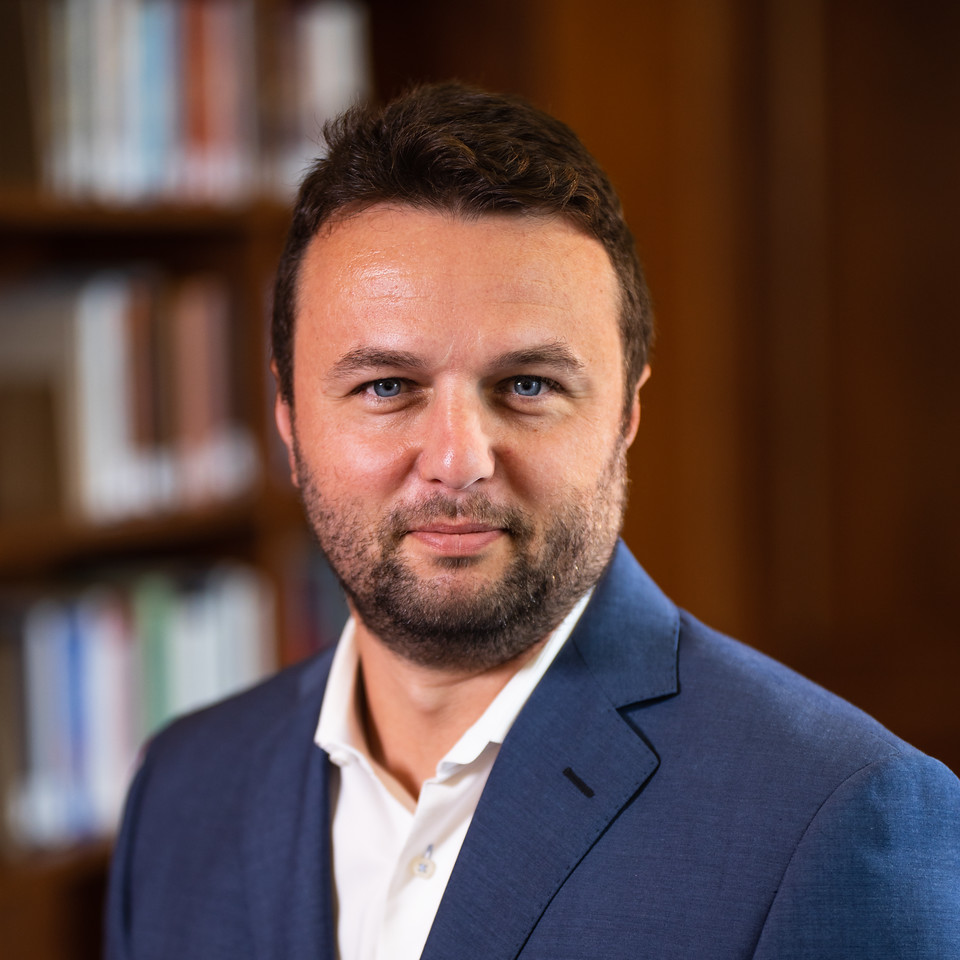
Stefano Capponi
Transitioning between jobs after 15 years in the oil industry, Stefano is from Italy and speaks Italian.
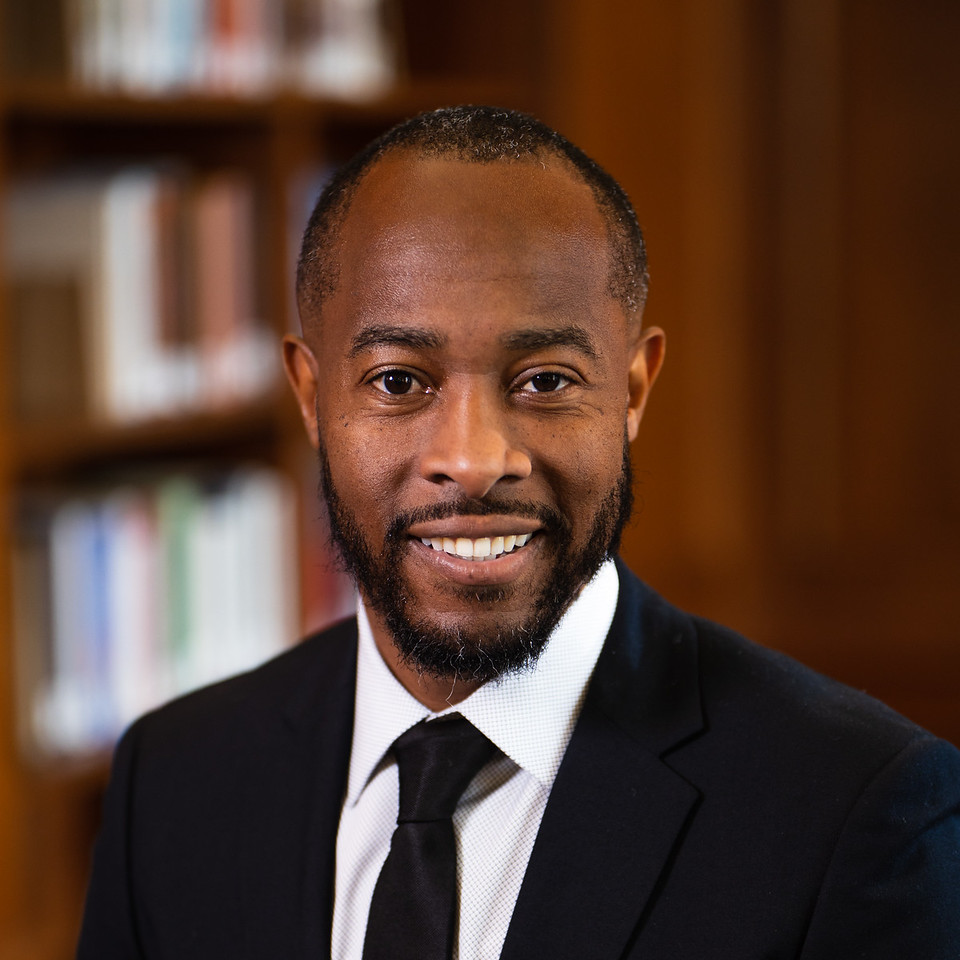
Bamrom Jonathan
Bamrom moved to the U.S. for college at 17 and is now the vice president of pharmacy strategic initiatives at Centene Corporation. He grew up in Dar-Es-Salaam, Tanzania, is fluent in Kiswahili.
You May Also Like
Keep Exploring
Rice Business Plan Competition announces 2022 teams
The 2022 Rice Business Plan Competition (RBPC), hosted by the Rice Alliance for Technology and Entrepreneurship and the Jones Graduate School of Business, will be back in person and on campus April 7-9.
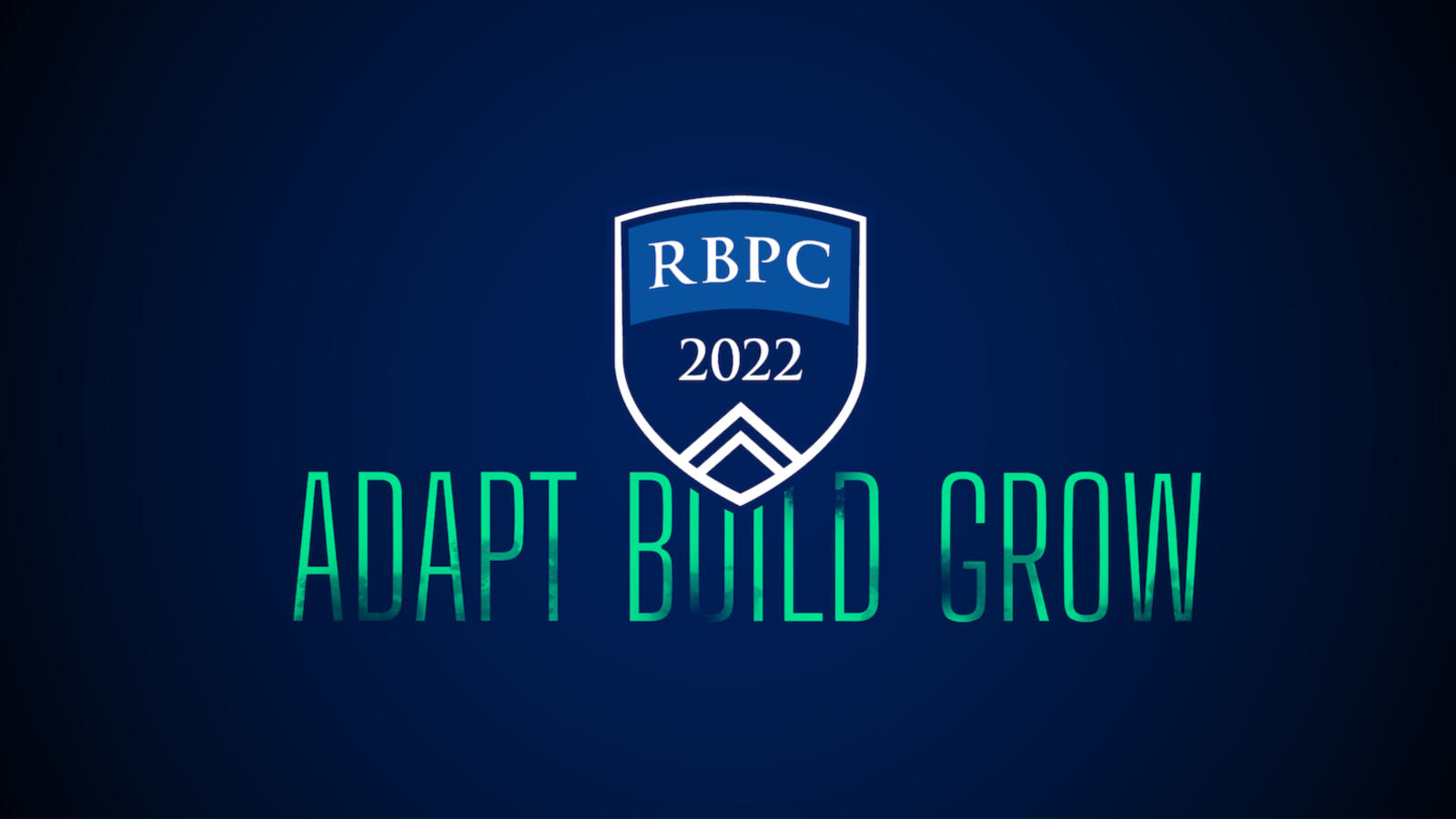
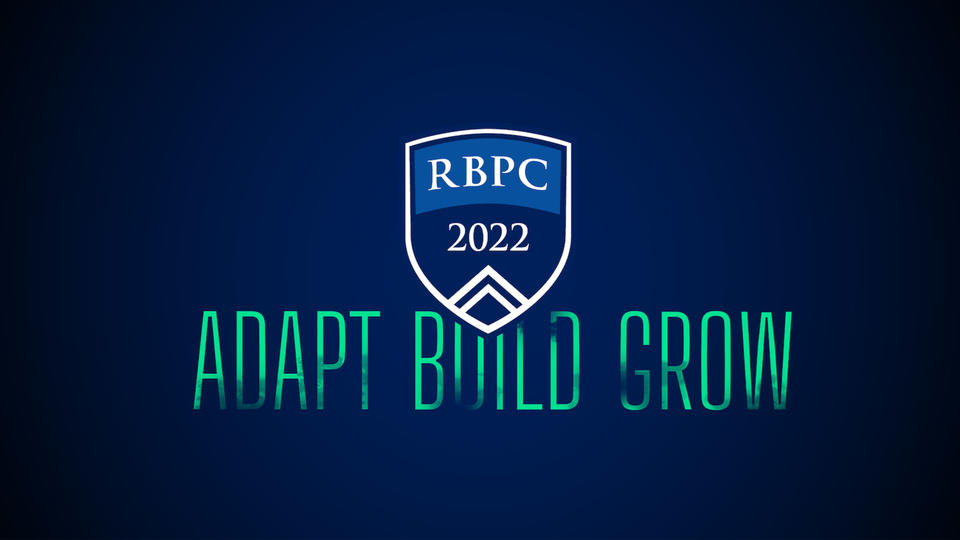
Student startups from around the world will compete for $1 million in prizes
The world's largest and richest student startup competition will bring together the most promising student ventures from top universities across the U.S. and Europe to compete for more than $1 million in prizes and funding.
The 2022 Rice Business Plan Competition (RBPC), hosted by the Rice Alliance for Technology and Entrepreneurship and the Jones Graduate School of Business, will be back in person and on campus April 7-9.
After two years of virtual competition, the Rice Alliance expects an exceptionally engaged community of over 250 judges, mentors and investors from the Houston community and beyond to turn out for the competition.
As we come out on the other side of a long and challenging two years, we're feeling a sense of renewal and energy looking to the future and finding inspiration from the next generation of entrepreneurs who are building a better world.Catherine Santamaria, director of the RBPC
“This year's competition celebrates student founders with a strong sense of determination — founders who are ready to adapt, build and grow companies that can change the future,” Santamaria said. “We hope their participation will provide guidance and inspiration for our community.”
This year’s startups were chosen from more than 400 applicants and will compete in five categories: energy, clean tech and sustainability; life sciences and health care solutions; consumer products and services; hard tech; and digital enterprise. With students from four countries, the 42 startups represent 31 universities, with 11 universities represented by two different teams. This year’s competition also features eight universities competing for the first time as well as three teams from European universities.
A number of Rice student startups participated in the internal RBPC qualifier pitch event to secure two spots in the RBPC. The 2022 qualifier saw the largest number of applicants, judges and participants in the internal competition’s history, demonstrating Rice’s continued success in fostering an entrepreneurial focus among its students. Rice Alliance awarded a total of $5,000 in cash prizes to the top three teams from the internal qualifier: EpiFresh, Green Room and Anvil Diagnostics. EpiFresh and Green Room received invitations to compete in the 2022 RBPC.
Not only do the startups pitch to a growing community of investors, entrepreneurs and partners, but the teams are also able to network and receive real-time feedback, advice and mentorship during the April event.
Past competitors have raised more than $3.57 billion in capital and more than 259 RBPC alumni have successfully launched their ventures. Most are still in business today, including 40 startups that have had successful exits through acquisitions or trading on a public market.
2022 Rice Business Plan Competition invited teams:
| Startup Name | University |
|---|---|
| Acorn Genetics | Northwestern University |
| Advanced Optronics | Carnegie Mellon University |
| Aethero Space | University of Missouri |
| AImirr | University of Chicago |
| AiroSolve | UCLA |
| Algeon Materials | UC San Diego |
| Anise Health | Harvard University |
| Beyond Silicon | Arizona State University |
| Bold Move Beverages | University of Texas at Austin |
| Diamante | University of Verona |
| EarthEn | Arizona State University |
| Empower Sleep | University of Pennsylvania |
| EpiFresh | Rice University |
| EpiSLS | University of Michigan |
| Green Room | Rice University |
| Horizon Health Solutions | University of Arkansas |
| Hoth Intelligence | Thomas Jefferson University |
| INIA Biosciences | Boston University |
| Invictus BCI | MIT |
| Invitris | Technical University of Munich (TUM) |
| KLAW Industries | Binghamton University |
| LIDROTEC | RWTH Aachen |
| Locus Lock | University of Texas at Austin |
| LymphaSense | Johns Hopkins University |
| Mallard Bay Outdoors | Louisiana State University |
| Mantel | MIT |
| Olera | Texas A&M University |
| OpenCell AI | Weill Cornell Medicine |
| OraFay | UCLA |
| Pareto | Stanford University |
| Photonect Interconnect Solutions | University of Rochester |
| PLAKK | McGill University |
| PneuTech | Johns Hopkins University |
| Rola | UC San Diego |
| RotorX | Georgia Tech |
| SimulatED | Carnegie Mellon University |
| SuChef | University of Pennsylvania |
| Symetric Finance | Fairfield University |
| Teale | Texas A&M University |
| Team Real Talk | University at Buffalo |
| TransCrypts | Harvard University |
| Woobie | Brigham Young University |
For more information about the 2022 Rice Business Plan Competition, visit rbpc.rice.edu.
You May Also Like

Rice University’s Jesse H. Jones Graduate School of Business today announced the launch of its Graduate Certificate in Healthcare Management program, a 10-month, credit-bearing professional credential designed for current and aspiring leaders seeking deep expertise in the business of healthcare.
Rice University's student startup competition names 42 teams to compete for over $1 million in prizes
The Rice Alliance for Technology and Entrepreneurship and Rice Business have announced the 42 student teams that will compete in the 2022 Rice Business Plan Competition, which returns to an in-person format on the Rice University campus in April.
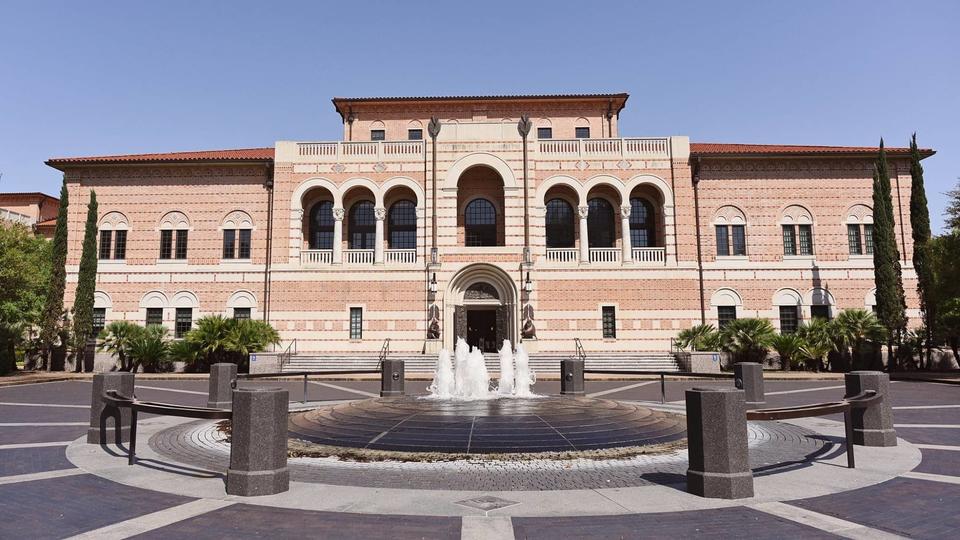
Meet Maya Stine, MBA '23
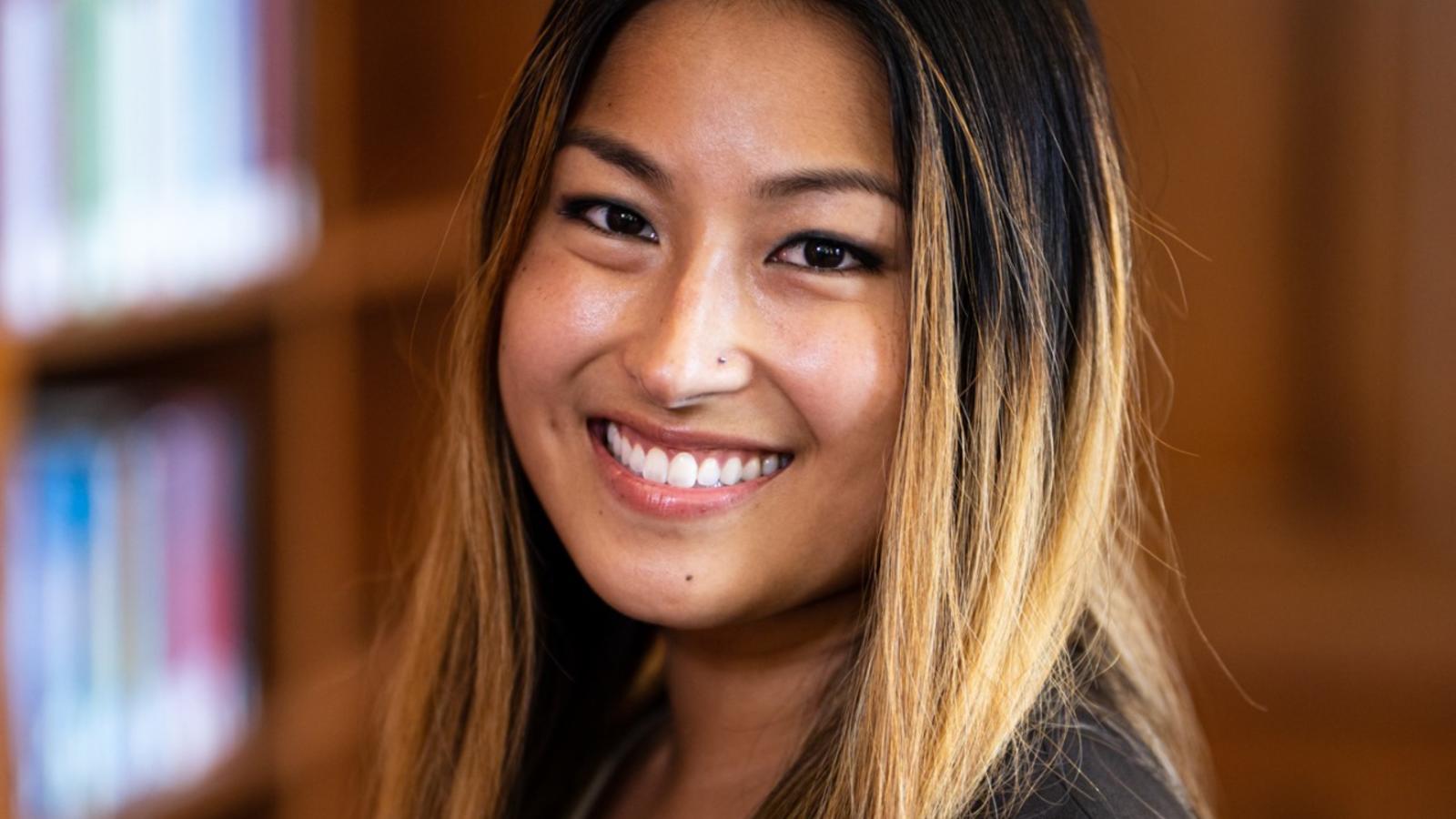
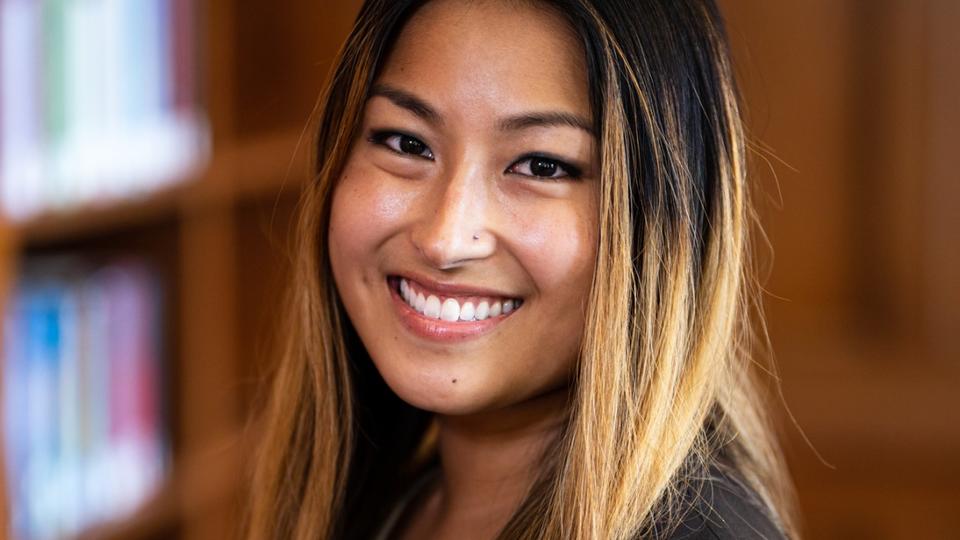
What was your pre-MBA Industry and function?
-
Entertainment, Voiceover Actor and Podcast Producer
What will be your post-MBA Industry and function?
- Consulting
Why did you want to pursue your MBA?
I have always been a curious person. Since I was younger, I would look for new information that would help me understand our world. That mission took me through the sciences, entertainment, entrepreneurship and a variety of hobbies. Along the way, I realized that while I could learn things in isolation, there was greater benefit from learning about their interactions. I view business as a force in our society that connects all topics and fields, and I wanted to learn the intricacies involved; this is what led me to pursue an MBA.
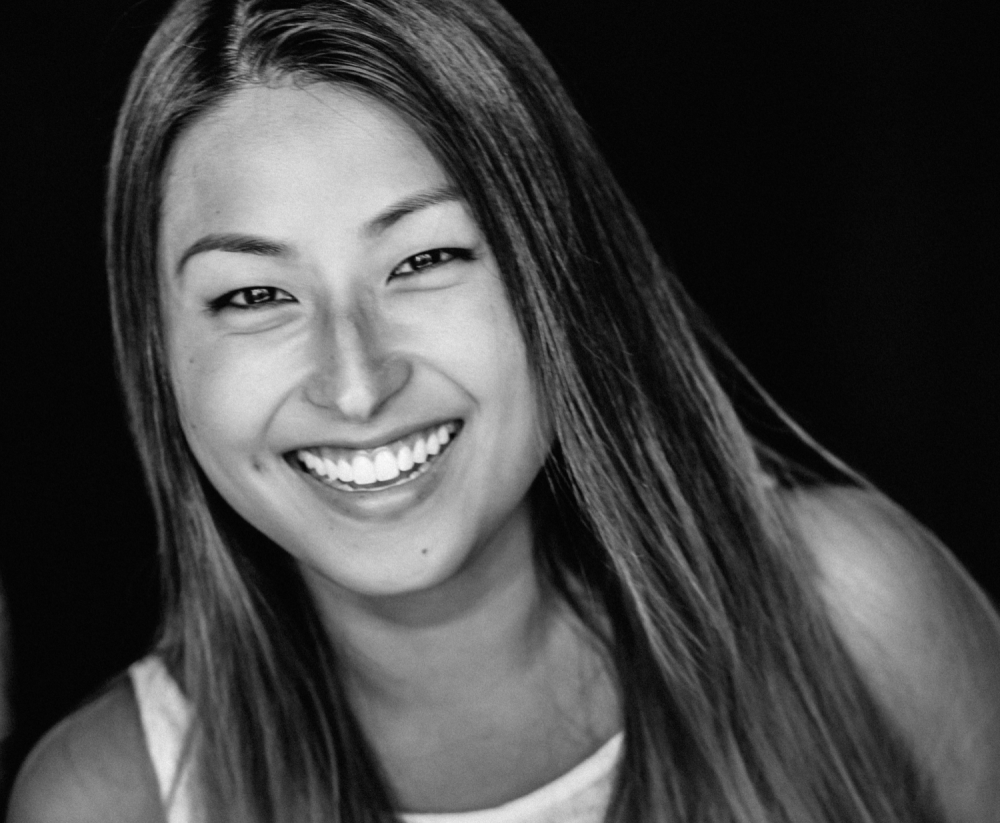
Why did you choose Rice Business?
I felt welcomed by Rice Business from the beginning. Throughout the application process I was able to connect with current students, alumni and the admissions committee whenever I had questions. I appreciated how available and willing to chat everyone was and wanted to be a part of that type of community. Also, the warm weather in Houston is nice :)
What are you most proud of from your time at Rice Business?
Out of everything I have done at Rice Business, I am most proud of receiving internship offers from all of the companies I interviewed with. When starting the MBA program, I was concerned because I have a unique background and knew that I would have to work hard to convey my capabilities. I dove right into the MBA experience by participating in case competitions, signing up for additional tutoring so my grades would reflect what I’ve learned, and spent every weekend on campus doing interview prep. Happily, it all paid off, and I feel like I have met my goals.
What are you most proud of in your career?
I am most proud of making the shift from laboratory scientist into entertainment. My first job offered a very clear and stable career path, but it did not excite me. I had no close connections to the entertainment industry so I had to do all my own research and make my own connections. Pivoting can be intimidating and sometimes it can feel like you will never be ready; taking the leap requires courage and a willingness to face uncertainty.
How has the Rice MBA helped you in your career?
Being a part of the Rice MBA program has allowed me to meet many people in a variety of fields. I never would have had access to some of these people beforehand, and I might not have even known I needed to chat with them! If I have a question, there is someone out there who can get me an answer and someone at Rice Business who will connect me with that person.

What does it mean to you to be a woman in business?
For me, being a woman in business means having choices. It is liberating to feel like I can go into new industries or functions and have the ability to get the job done. I am very grateful for all of the women before me who paved the way, took a stand against the nay-sayers and opened up these numerous possibilities.
What advice would you give prospective students who are considering an MBA?
I would tell prospective students to keep an open mind but to really reflect and know who they are before and throughout the MBA experience. There are so many things you can do and ways you can get involved over the two years. It’s physically impossible to take advantage of everything. Having goals, knowing your interests and your values will guide you through all of the many opportunities and help you take advantage of the MBA in a way that’s best for you and your career.
Do you have any other comments or anecdotes you would like to share?
Most of us approach an MBA from one point of view – our point of view. I remember thinking about what classes I would take, what clubs I wanted to sign up for, how it could help my career, etc. What’s interesting, is that an MBA, especially a Rice MBA, is not a solo process. In addition to a heavy emphasis on teamwork, I have felt supported every step of the way whether it be from professors, clubs, the Career Development Office, new friends, old friends or family. At the end of the day, the MBA will be for me, but I could not have done it on my own.
You May Also Like
Field Trip February: Check out great restaurants with delicious dining at Post Houston
Rice MBA Ope Amosu recently opened his fast-casual restaurant ChòpnBlọk in Post Houston, the renovated Barbara Jordon Post Office downtown.
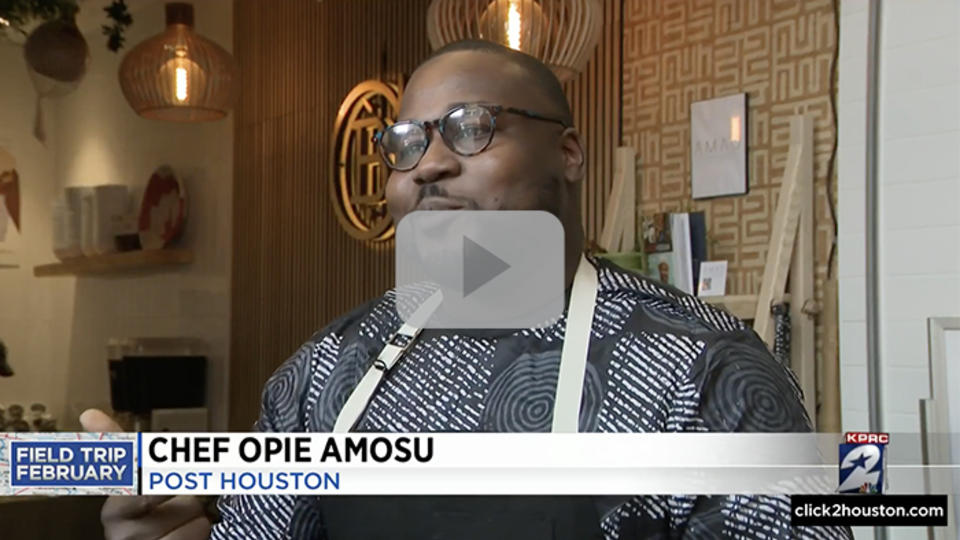
Meet Delaney Berman, MBA '22
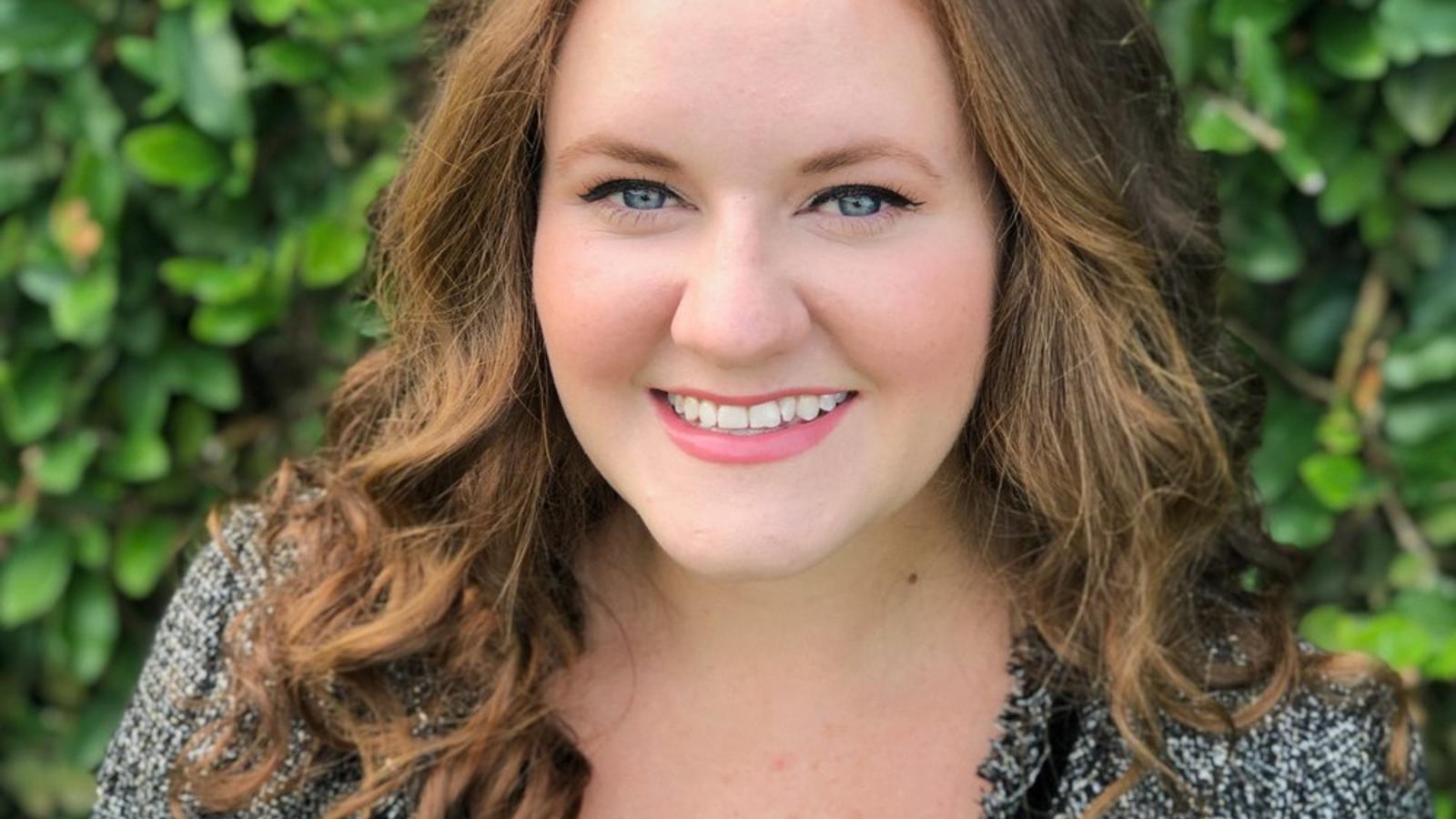
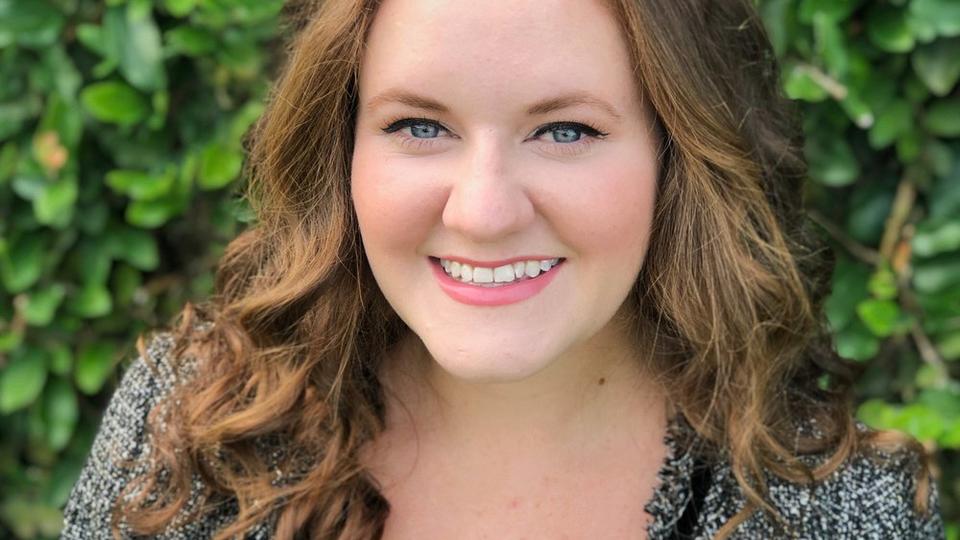
What was your pre-MBA Industry and function?
-
I have a bit of an unconventional background – I was a corporate litigation paralegal for two years and then a personal chef.
What will be your post-MBA Industry and function?
- Foodtech/CPG industry. I’ll continue running my own company, Berman Foods, as the founder and CEO and may also join another startup.
Clubs and organizations:
- Academic Affairs Chair for the Jones Student Association
- Marketing Director for the Entrepreneurship Association
- Admissions Ambassador
Why did you want to pursue your MBA?
Working in law, I realized how long it takes to effect real change. I decided I could have a more immediate impact by working directly in the market. Simultaneously, I watched as several plant-based companies struggled to scale efficiently and decided I could contribute to our food system by bringing more business acumen to the field. I had no business background and knew I would benefit from joining a full-time MBA program so I could immerse myself in the courses.
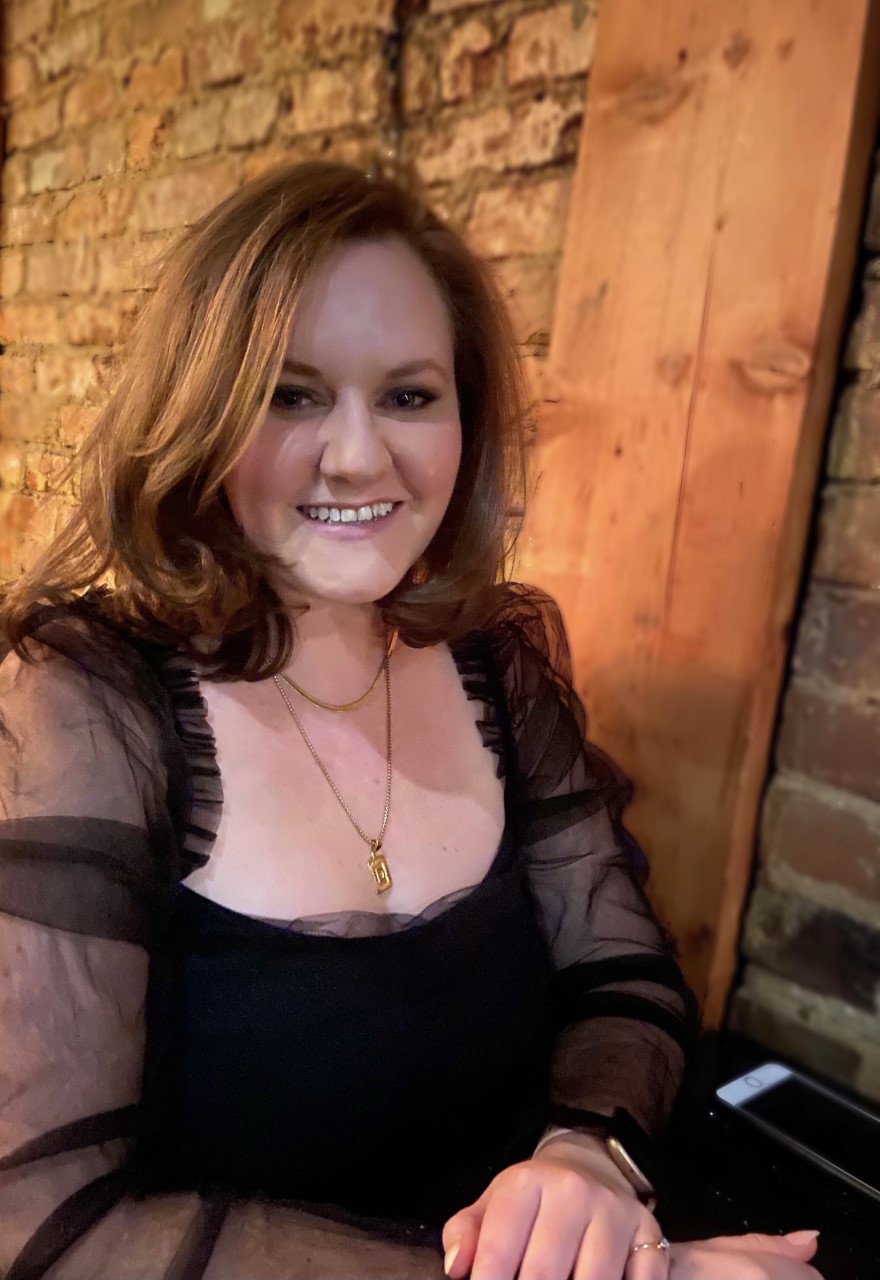
Why did you choose Rice Business?
Rice stood out to me early on for its entrepreneurship program and genuine emphasis on learning. Once I began communicating with the admissions team and shared with them that I wanted to work in plant-based food, they further set the school apart by describing the many resources available to student entrepreneurs on campus and within the larger Rice community. They were the first and only program that promised to have my back.
What are you most proud of from your time at Rice Business?
The connections I’ve made with my classmates and some of my professors! I’ve had the joy of getting to know so many wonderful people, all with unique backgrounds, perspectives and aspirations.
What are you most proud of in your career?
Starting my own company and creating a product that customers love! It’s been the coolest experience to watch people trying and enjoying our products. I finally feel like I’m getting to do exactly what I was meant to do with my life.
How has the Rice MBA helped you in your career?
Rice has helped me in so many ways. My classes, especially those in entrepreneurship, strategy and marketing, have completely reframed how I think about business and brands. The guidance of my professors and classmates has been integral to launching my company. Most importantly, Rice has introduced me to the most supportive community, without whom I would not have had the confidence to do many of the things I’ve tried over the past two years. It’s been a life-changing experience.

What does it mean to you to be a woman in business?
It should not mean anything different than being a man in business, but it seems to. It’s taught me to advocate for myself. It often means bringing a different perspective to the discussion. It also means that I have a responsibility to bring more women into the room with me whenever I can, and to make everything a little easier for the next generation.
What advice would you give prospective students who are considering an MBA?
Carefully consider why you want an MBA, and then jump in fully. It helps to have a clear purpose for being here so that you may spend your time accordingly. Prioritize getting to know your peers because that’s the richest and warmest part of it all.
Do you have any other comments or anecdotes you would like to share?
Rice is an exceptional community full of brilliant, fascinating and loving people. I’m so glad I chose this school. Also, there are very few concrete limits to what you can accomplish. Trust yourself and go all in!
